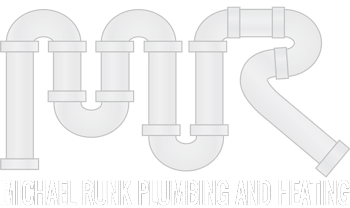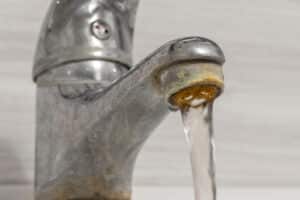At Michael Runk Plumbing and Heating, we believe in delivering top-notch information to help our clients make informed decisions about their home’s plumbing and heating systems. One common issue that many homeowners face is the presence of hard water. We wanted to take some time to delve into the concept of hard water, its causes, effects, and potential solutions.
What is Hard Water?
Hard water refers to water that contains a high concentration of minerals, primarily calcium and magnesium ions. These minerals are picked up as water passes through mineral-rich geological formations like limestone and chalk. While these minerals are not harmful to human health, they can have a significant impact on your plumbing system, appliances, and even your daily routine.
Identifying Hard Water
If you’ve noticed stubborn white spots on your dishes, soap scum that just won’t disappear, or a lack of lather when using soap, chances are you’re dealing with hard water. Additionally, your plumbing fixtures might develop a buildup of mineral deposits, and your clothes and towels might feel stiff and scratchy even after washing.
Effects on Plumbing and Appliances
Hard water can take a toll on your plumbing and appliances over time. The mineral deposits left behind by hard water can accumulate in pipes, reducing water flow and eventually leading to clogs. This can result in decreased water pressure and even pipe corrosion, which can be costly to repair. Appliances such as water heaters, dishwashers, and washing machines can also suffer from decreased efficiency and a shortened lifespan due to mineral buildup.
Impact on Energy Efficiency
Another concern with hard water is its impact on energy efficiency. Appliances like water heaters have to work harder and use more energy to heat water when there is a layer of mineral deposits insulating the heating elements. This not only increases energy bills but also contributes to a larger carbon footprint.
Solutions for Hard Water
If you have hard water in your home, here are a few potential solutions:
- Water Softeners: A water softener is a device that removes calcium and magnesium ions from the water and replaces them with sodium ions. This process helps prevent mineral buildup in pipes and appliances. However, it’s important to note that the additional sodium content might not be suitable for individuals on a low-sodium diet.
- Electronic Water Descalers: These devices use electromagnetic fields to alter the behavior of minerals in the water, preventing them from forming scale. While they don’t actually remove minerals, they can be effective in reducing scale buildup.
- Citric Acid Treatment: Citric acid can be used to dissolve mineral deposits in pipes and appliances. It’s a natural and environmentally friendly option, but it might not be as effective for severe cases of hard water.
Work With an Experienced Maryland Plumber
At Michael Runk Plumbing and Heating, we understand the challenges that hard water can pose to your plumbing system, appliances, and overall comfort. By recognizing the signs of hard water and exploring effective treatment options, you can ensure the longevity and efficiency of your plumbing and heating systems. If you’re facing persistent issues related to hard water, don’t hesitate to reach out to our expert team for guidance and solutions tailored to your specific needs. Your comfort and satisfaction are our top priorities. Reach out to us today to learn more about all of the services we offer.

